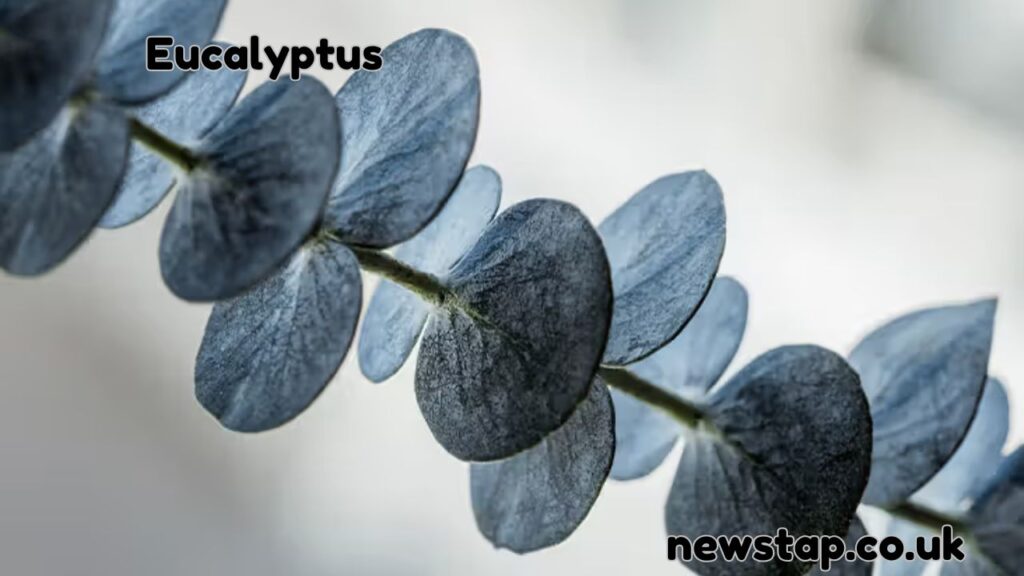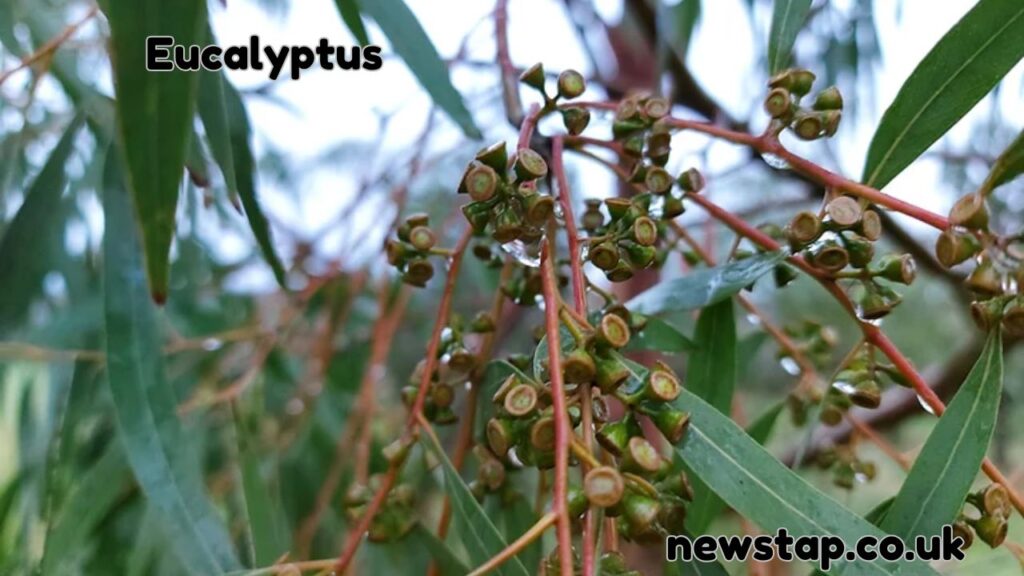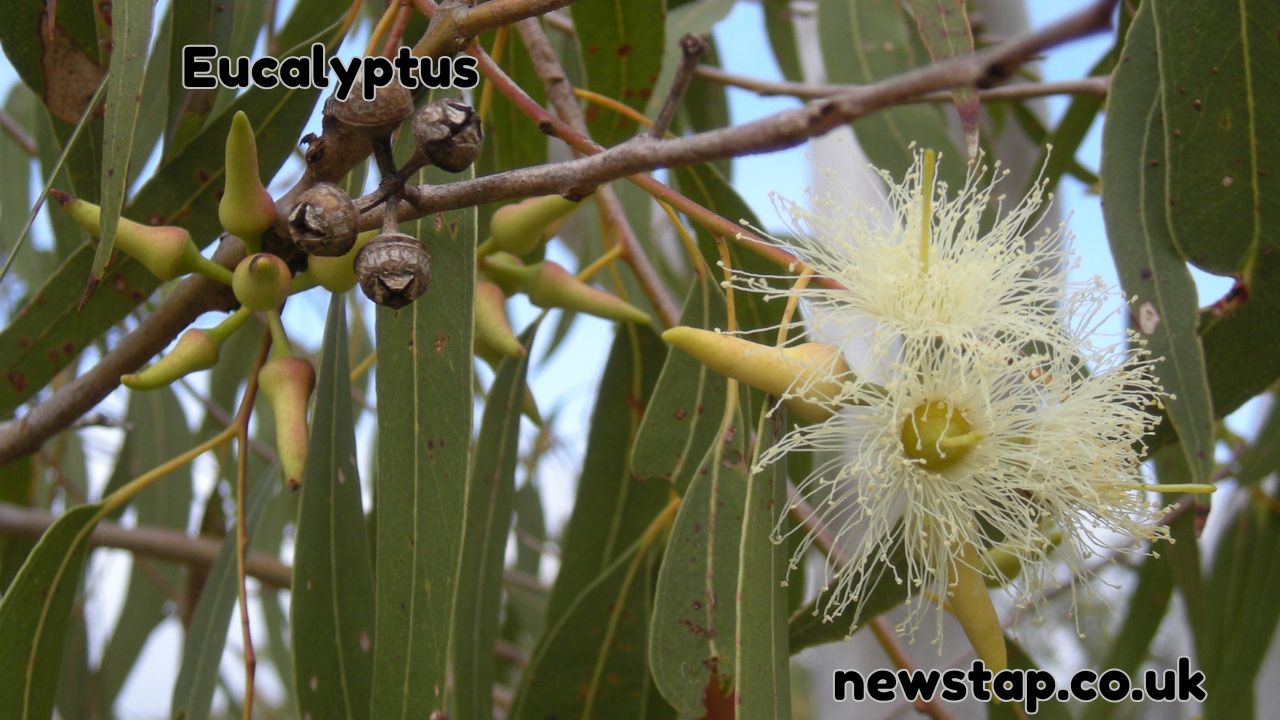Introduction to Eucalyptus
Among the world’s most remarkable plants, Eucalyptus stands out for its versatility, medicinal qualities, and cultural significance. Native primarily to Australia but now grown worldwide, Eucalyptus has been valued for centuries as a source of healing, timber, essential oils, and even ecological benefits. Today, it continues to play a vital role in medicine, wellness, industry, and environmental conservation. This article explores the story of Eucalyptus—what it is, its history, uses, and why it remains one of nature’s most valuable trees.
What is Eucalyptus?

Eucalyptus is a genus of over 700 species of flowering trees and shrubs, most of which are native to Australia. Commonly known as gum trees, they are recognized for their tall stature, fast growth, and distinctive aromatic leaves. The essential oil derived from these leaves is widely used in medicines, cosmetics, and cleaning products.
Historical Importance of Eucalyptus
For centuries, Indigenous Australians used Eucalyptus as a natural remedy for wounds, fevers, and infections. They brewed the leaves into teas, used crushed leaves for topical treatments, and even employed smoke from burning Eucalyptus leaves in traditional healing rituals. European settlers later adopted these practices, leading to global recognition of the tree’s medicinal and practical value.
Health Benefits of Eucalyptus
Perhaps the most famous aspect of Eucalyptus is its contribution to health and medicine. Its essential oil, rich in cineole (also known as eucalyptol), has powerful antibacterial, antiviral, and anti-inflammatory properties. Key health uses include:
- Respiratory Relief: Inhaling Eucalyptus oil helps clear nasal congestion, soothe coughs, and ease symptoms of asthma or bronchitis.
- Topical Antiseptic: Eucalyptus oil is used in ointments and creams to disinfect wounds and support healing.
- Pain Relief: Applied in diluted form, it provides relief from joint pain, muscle aches, and arthritis.
- Oral Health: Many mouthwashes and toothpastes include Eucalyptus for its antibacterial properties.
Eucalyptus in Aromatherapy
In aromatherapy, Eucalyptus is a staple. Its fresh, sharp scent helps promote relaxation, reduce stress, and improve concentration. Eucalyptus essential oil is commonly used in diffusers, steam inhalations, and massage blends.
Industrial Uses of Eucalyptus
Beyond medicine, Eucalyptus has countless industrial applications:
- Timber: Its wood is used in construction, furniture making, and flooring.
- Paper Industry: Eucalyptus pulp is a primary source for producing high-quality paper.
- Biofuel: Research is exploring Eucalyptus as a renewable energy source.
- Cleaning Products: Its natural antibacterial qualities make it popular in eco-friendly cleaning solutions.
Environmental Benefits of Eucalyptus
The role of Eucalyptus in the environment is equally significant. These trees are fast-growing, making them excellent for reforestation and erosion control. They also absorb large amounts of carbon dioxide, helping mitigate climate change. However, they must be managed carefully, as some species can consume significant water resources and impact local ecosystems.
Eucalyptus in Daily Life

Eucalyptus has seamlessly entered everyday life:
- Vapor rubs and cough syrups use Eucalyptus to ease colds.
- Spa products like oils, scrubs, and balms often include its refreshing fragrance.
- Candles and home sprays use Eucalyptus for its clean, uplifting scent.
- Traditional teas made from Eucalyptus leaves are still consumed in some cultures for wellness.
Eucalyptus in Culture and Symbolism
In Australian culture, Eucalyptus is more than just a tree—it is a national symbol. It’s associated with resilience, healing, and connection to the land. The koala, which feeds almost exclusively on Eucalyptus leaves, has further cemented the tree’s iconic status worldwide.
Precautions and Safety with Eucalyptus
While Eucalyptus offers many benefits, it must be used carefully:
- Essential oil should always be diluted before topical use.
- Ingesting undiluted oil can be toxic.
- Children and pets may be especially sensitive to its effects.
- People with respiratory conditions should consult a doctor before inhaling concentrated Eucalyptus vapors.
Why Eucalyptus Matters Today
In a modern world seeking natural remedies and sustainable resources, Eucalyptus shines as both a healer and a provider. It bridges the gap between traditional wisdom and contemporary science, offering solutions for health, industry, and the environment. Its versatility ensures it will remain a vital resource for generations to come.
Conclusion
Eucalyptus is truly a tree of endless benefits. From its historical use in traditional medicine to its modern role in healthcare, industry, and environmental sustainability, it continues to enrich human life in countless ways. By understanding Eucalyptus, we gain not only an appreciation for its many uses but also a deeper respect for the natural world.
Also Read: Understanding Bowel Cancer Stomach Noises: Symptoms, Causes, and Treatments



